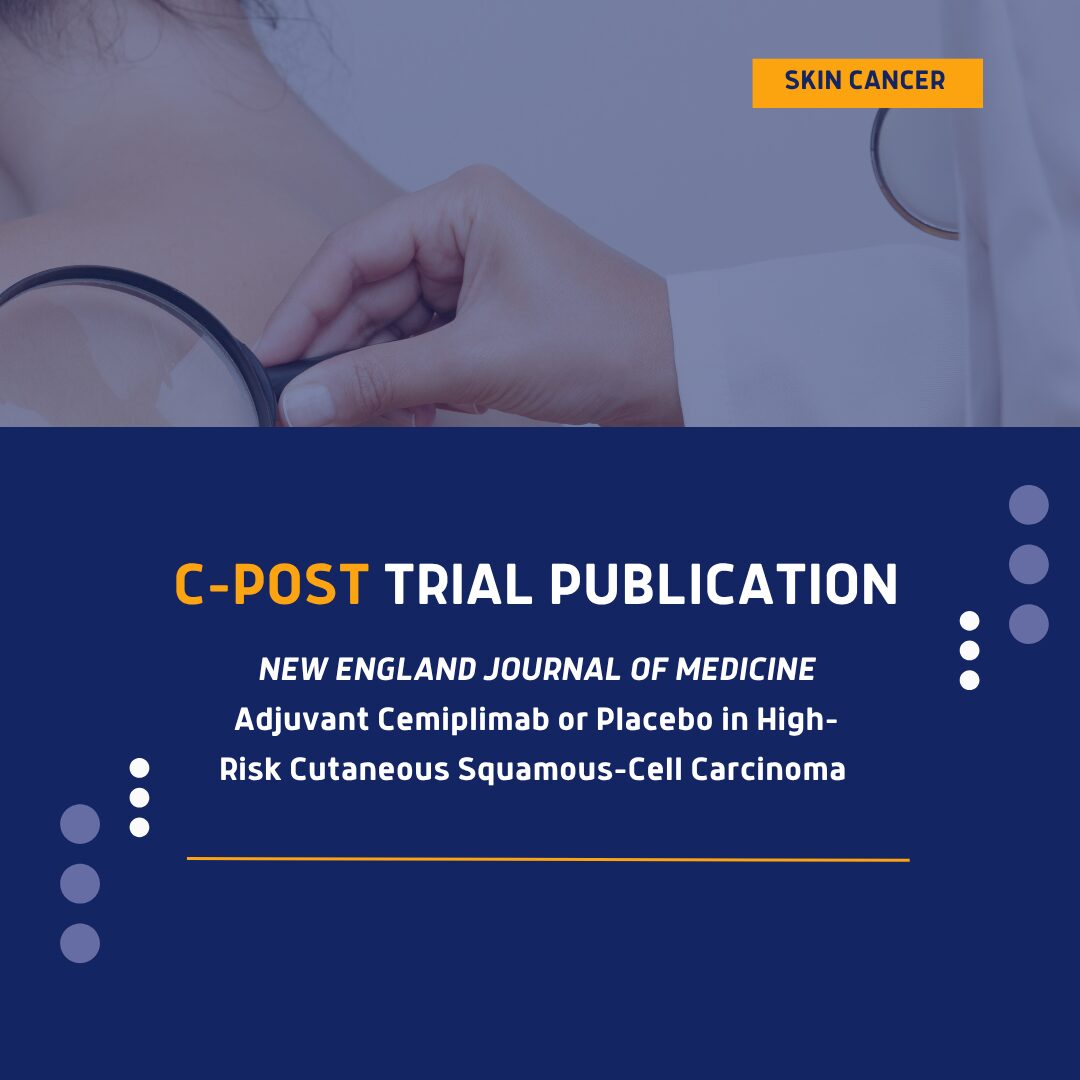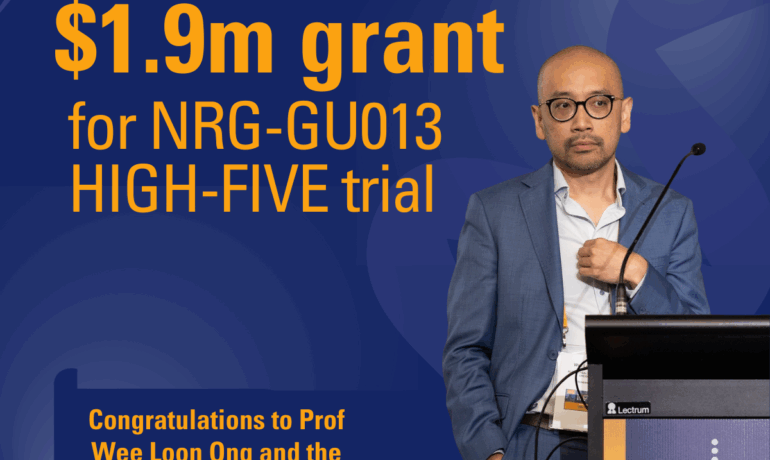LATEST NEWS: 11 JUNE 2025
New findings from a trial into treating a common form of skin cancer – cutaneous squamous cell carcinoma (CSCC) – could be a game-changer for many people at high risk of recurrence of disease.
Lead investigator Prof Danny Rischin presented results of primary analysis of the C-POST trial at the ASCO (American Society of Clinical Oncology) meeting in Chicago, USA, in late May, as the findings were published in the New England Journal of Medicine.
The Phase III C-POST trial was sponsored by Regeneron Pharmaceuticals and Sanofi, and designed in collaboration with TROG Cancer Research. TROG also led a Radiation Therapy Treatment Plan Review Committee that centrally reviewed radiation therapy treatment plans as part of the study.
The trial involved a total of 415 participants with local or regional cutaneous squamous-cell carcinoma who had undergone surgical resection and postoperative radiation therapy and were classified as being at high risk of recurrence. Participants were enrolled from 107 sites across 16 countries.
The C-POST trial followed the TROG 05.01 – POST trial, which showed no additional benefit of carboplatin administered concurrently with adjuvant radiotherapy, compared with radiotherapy alone, in patients at high risk for recurrence of CSCC. However, it helped identify the patient sub-population with the highest risk of recurrence.
In the more recent C-POST trial, participants were randomised to receive either adjuvant cemiplimab (a PD-1 inhibitor) or placebo over a period of 48 weeks, with the aim of preventing recurrence of the skin cancer.
There was a marked reduction in the risk of the cancer returning – 30% in the placebo group versus just 9% in participants who received cemiplimab, the findings showed.
“The disease-free survival differences are very impressive,” said Prof Rischin, from the Peter MacCallum Cancer Centre, adding that “the benefit was seen in all the subgroups that we looked at.”
CSCC is the second most common skin cancer worldwide, with an estimated 2.4 million cases annually.
“Our study clearly shows that you can dramatically reduce the risk of recurrence,” Prof Rischin said, suggesting that adjuvant cemiplimab could serve as a potential option for clinicians and patients to consider in the setting of high-risk CSCC.
Congratulations to Prof Rischin and the research team on these promising findings.
- Read the paper in the NEJM
- Read the ASCO summary of the findings
Related Post
TROG brings international prostate cancer trial to Australia, thanks to $1.9 million MRFF grant
LATEST NEWS: 24 September 2025 TROG is set to
TROG 15.03/ANZUP 16001 FASTRACK II: economic analysis shows new technique is cheaper and more effective in the Australian setting
TRIAL UPDATE: 12 August 2025 Treating inoperable kidney cancer




